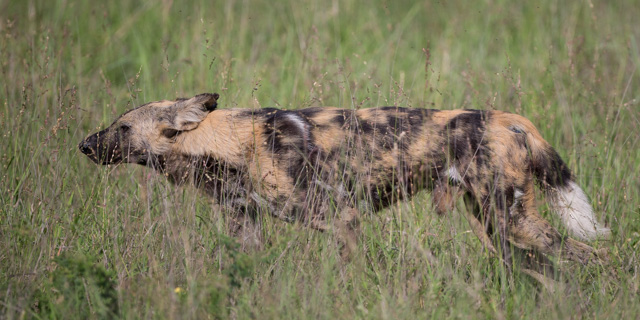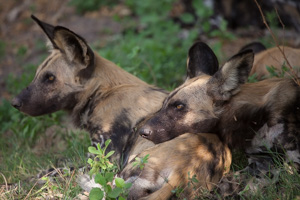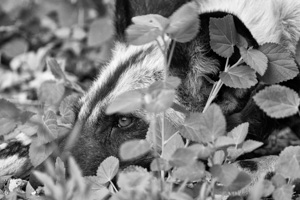African Wild Dog Spatial Ecology in the Okavango Delta

Publications Resulting From This Study
The African wild dog (Lycaon pictus) is one of Africa's most endangered carnivores - there are estimated to be fewer than 6,000 individuals left in the wild, and the species is at very high risk of extinction. The challenges facing the wild dog are numerous and overwhelming, stemming largely from competition and conflict with an expanding human population.

The ecological niche occupied by the wild dog is that of "hit and run" predator - they are so voracious and successful as hunters that a pack of wild dogs must continually be on the move to avoid depleting prey species and attracting the attention of larger competitive predators such as lions and hyenas. As a result, their home ranges are massive, and they require vast wilderness areas to survive.
Not only does the continual encroachment of agricultural activity into these wilderness areas deprive wild dogs of habitat and natural prey species, but it also creates conflict with humans as small production animals (e.g. goats and calves) are preyed upon by wild dogs, and it brings wild dogs into contact with domestic dogs which can be vectors for fatal diseases such as rabies and canine distemper (to which wild dogs appear to be particularly susceptible).
 The goal of this project is to better understand movement patterns and spatial ecology of African wild dogs in northern Botswana, including the Okavango Delta and Chobe/Linyanti ecosystem. This is one of Africa's largest and most pristine wildlife sanctuaries, and a bastion for the survival of the African wild dog as a species. The study will pay particular attention to scent marking and dietary habits, and the role that these play in the wild dogs' spatial ecology; the results could have significant implications for future conservation efforts:
The goal of this project is to better understand movement patterns and spatial ecology of African wild dogs in northern Botswana, including the Okavango Delta and Chobe/Linyanti ecosystem. This is one of Africa's largest and most pristine wildlife sanctuaries, and a bastion for the survival of the African wild dog as a species. The study will pay particular attention to scent marking and dietary habits, and the role that these play in the wild dogs' spatial ecology; the results could have significant implications for future conservation efforts:
- Efficacy of bio-fences and synthetic scent boundaries to manage wild dog movement patterns
- Identifying and avoiding dominant individuals when capturing wild dogs for relocation
- Identifying suitable habitat for wild dog reintroduction programs

In addition to expanding knowledge of the species, the study will identify villages within or close to the home ranges of wild dog packs so that an intensive vaccination program for dogs can be implemented in these villages, reducing the risk of disease transmission to wild dogs.
